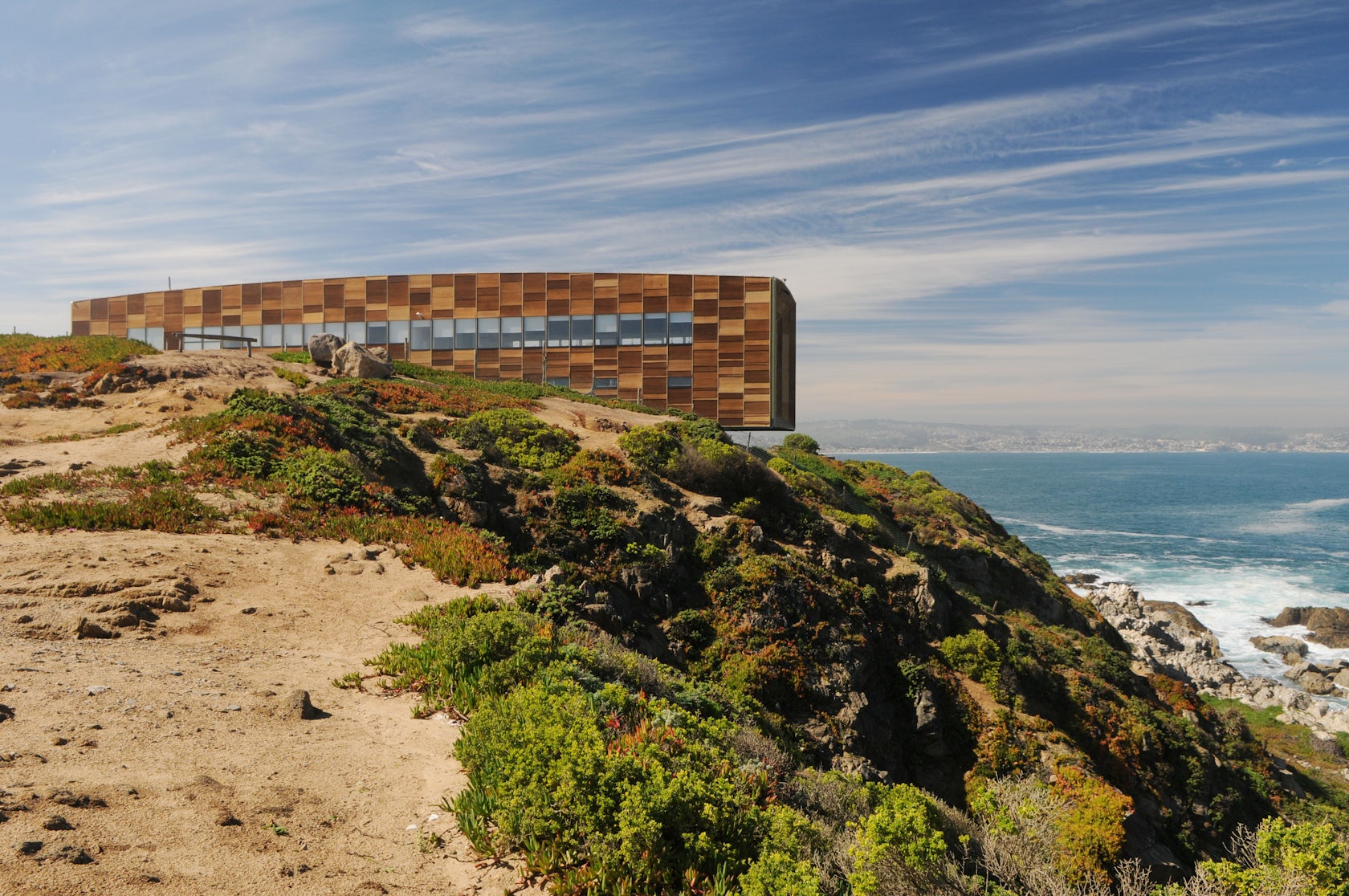A long, narrow strip between the Andes and the Pacific Ocean, Chile is a country with an emerging design culture as dynamic and remarkable as its landscape. Chilean architects are increasingly gaining recognition: Pedro Alonso and Hugo Palmarola won the Silver Lion at the Venice Biennale, Alejandro Aravena served on the Pritzker jury, and Smiljan Radic recently built the Serpentine Pavilion in London. New Chilean projects represent a critical engagement with design that reinterprets past traditions and organizational methods. As more projects are being built in Chile, a contemporary architecture is beginning to surface, one that carefully examines spatial, material, and programmatic practices to reimagine them.
On the occasion of today’s national holiday honoring Our Lady of Mount Carmel, we’re pleased to present standout projects that showcase Chile’s design ideology and emergent architecture. Representing a wide range of geographic conditions and locations, these seven projects exemplify different conceptual and formal techniques across diverse firms, varying programs, and contrasting scales. Overlooking the ocean, straddling the mountains, and bustling in the heart of the city, these projects give insight into the Chilean architecture of today.

© ELEMENTAL S.A.

© ELEMENTAL S.A.
The Siamese Towers by ELEMENTAL S.A., Santiago, Chile
These glass towers were designed for a university to house “everything that had to do with computers.” The result is a hermetic volume with controlled perforations toward the outside. A series of spaces and objects were designed to draw together different people in conversation and the exchange of knowledge.

© Pablo Casals Aguirre

© Gonzalo Iturriaga Arquitectos
Proingas by Gonzalo Iturriaga | Arquitectos, Santiago, Chile
The Proingas building houses admin offices and a showroom for an industrial machinery reseller. Both technology and site conditions defined the design, which is separated into three parts: a two-story office volume, a double-height showroom, and a permeable skin.

© Cazu Zegers Arquitectura

© Cazu Zegers Arquitectura
Hotel of the Wind / Tierra Patagonia Hotel by Cazu Zegers Arquitectura, Magallanes, Chile
Tierra Patagonia project emerges in dialog with its vast landscape and setting. Like a fold in the terrain, the architecture is both anchored to the ground and completely covered in Lenga wood paneling. Internal pathways structure warm, comforting interior spaces of the hotel.

© Lateral, arquitectura & diseño

© Lateral, arquitectura & diseño
Centro Cultural Gabriela Mistral by Lateral, arquitectura and diseño, Santiago, Chile
This restoration of the Diego Portales building aimed to entice a sense of play while respecting the site’s history and the passage of time. In contrast to the original structure, new connections were established to better enhance the building’s role in the city circa public space and transparency.

© marcelocaceres.com Architectural Photography

© marcelocaceres.com Architectural Photography
Capilla San Alberto Magno by Juan Pavez Aguilar + José Requesens Aldea, Valparaíso, Chile
The Capilla San Alberto Magno chapel design utilizes a solid concrete box that rests atop a flexible base that opens to the surrounding site. The simple geometry and material choices combine with careful attention to light quality.

© Aryeh Kornfeld K.

© cote miranda
Neighbor Care Center by Gubbins Arquitectos, Peñalolén, Chile
This neighborhood care center is part of a phased project combining various services in a civic center. The combination of functionality and openness creates an efficient building responding to community needs. Solids and voids combine to define an entry and town hall while a structured façade regulates sunlight and the formal expression of the building.

© Martín Hurtado Arquitectos Asociados

© Martín Hurtado Arquitectos Asociados
Coastal Marine Research Station by Martín Hurtado Arquitectos Asociados, Cartagena, Chile
A coastal research station, this industrial facility overlooks the Pacific Ocean while including space for prolonged research residences. Three areas make up the program, including a multipurpose space, international laboratory, and research area. Three parallel volumes face the ocean, each partially buried in the site’s slope.




